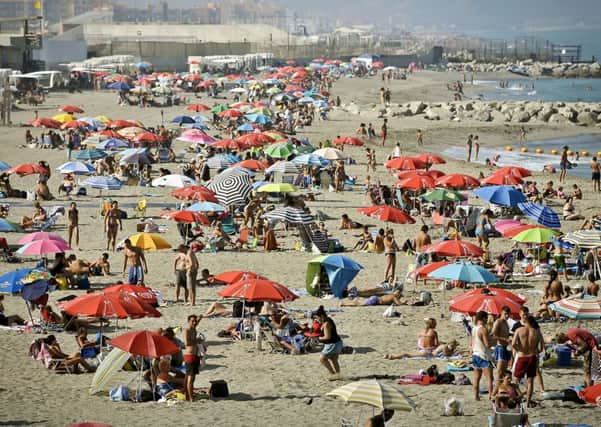Why raft of bogus holiday sickness claims could make your summer holiday more expensive


British holidaymakers have not always had the best reputation on the continent, largely when it comes to boozy behaviour by young people in what they see as party destinations on the continent. But a new reason for hotel owners and tour operators to be wary of Brits abroad has been developing in the past few years; a dramatic rise in false claims for serious illnesses supposedly suffered while on holiday.
According to the travel trade organisation Abta, since 2013 there has been a 500 per cent increase in the number of compensation claims received by travel companies for illnesses like food poisoning - despite the number of sickness reports to hotels in resorts remaining the same. Abta says the problem is only associated with holidaymakers from the UK.
Advertisement
Hide AdAdvertisement
Hide AdThe Government has pledged to crackdown on fraudulent claims, warning such action is needed to “help stop the price of package holidays soaring for the honest majority”.
A new survey has suggested what may be behind the rise of the past few years; claims management firms cold-calling millions of people urging them to apply for compensation.
While an estimated one in five Britons have received an approach by such companies, 70 per cent of those questioned in the YouGov survey were unaware that making a false claim could result in a prison sentence in the UK or abroad.
In October last year Deborah Briton and partner Paul Roberts from Wirral, Merseyside, were jailed at Liverpool Crown Court for making fraudulent claims.
Advertisement
Hide AdAdvertisement
Hide AdBriton was sentenced to nine months in prison and Roberts was handed a 15-month jail term.
It came a couple of months after Lancashire firm Allsure Ltd had its licence to offer regulated claims management services cancelled after an investigation found the company had encouraged holiday-goers to fabricate or embellish symptoms of gastric illness to get compensation. Further evidence showed the firm had used deceptive sales scripts – exaggerating expected pay-outs to entice consumers.
The YouGov research has been published six months after the Government announced plans to reduce the incentives of making such claims, while still protecting those who still suffer genuine illness.
Due to the reported increase in claims, and as many tour operators appear to settle them out of court, the costs to the industry are increasing. This is raising fears of higher package holiday prices for the majority of law-abiding holiday makers.
Advertisement
Hide AdAdvertisement
Hide AdA major barrier to tackling the issue is that legal fees are not controlled, so costs for tour operators who fight cases can be out of proportion to the damages claimed.
Under Government proposals, travel firms would pay a prescribed sum depending on the value of the claim, making the cost of defending cases predictable.
Abta wants the measures to be in place by April so they are effective for the summer season.
Chief executive Mark Tanzer said: “Unscrupulous claims management companies are encouraging people to make a false sickness claim which could land them with a large fine or even a prison sentence. False claims don’t just make UK holidaymakers vulnerable to serious penalties - they’re also costing travel companies and hotel owners tens of millions of pounds and tarnishing the reputation of the British abroad. Closing the loophole in the law in time for the 2018 holiday season will make a big difference.”
Former Justice Secretary David Lidington said: “This government is absolutely determined to tackle the compensation culture which has penalised the honest majority for too long.”